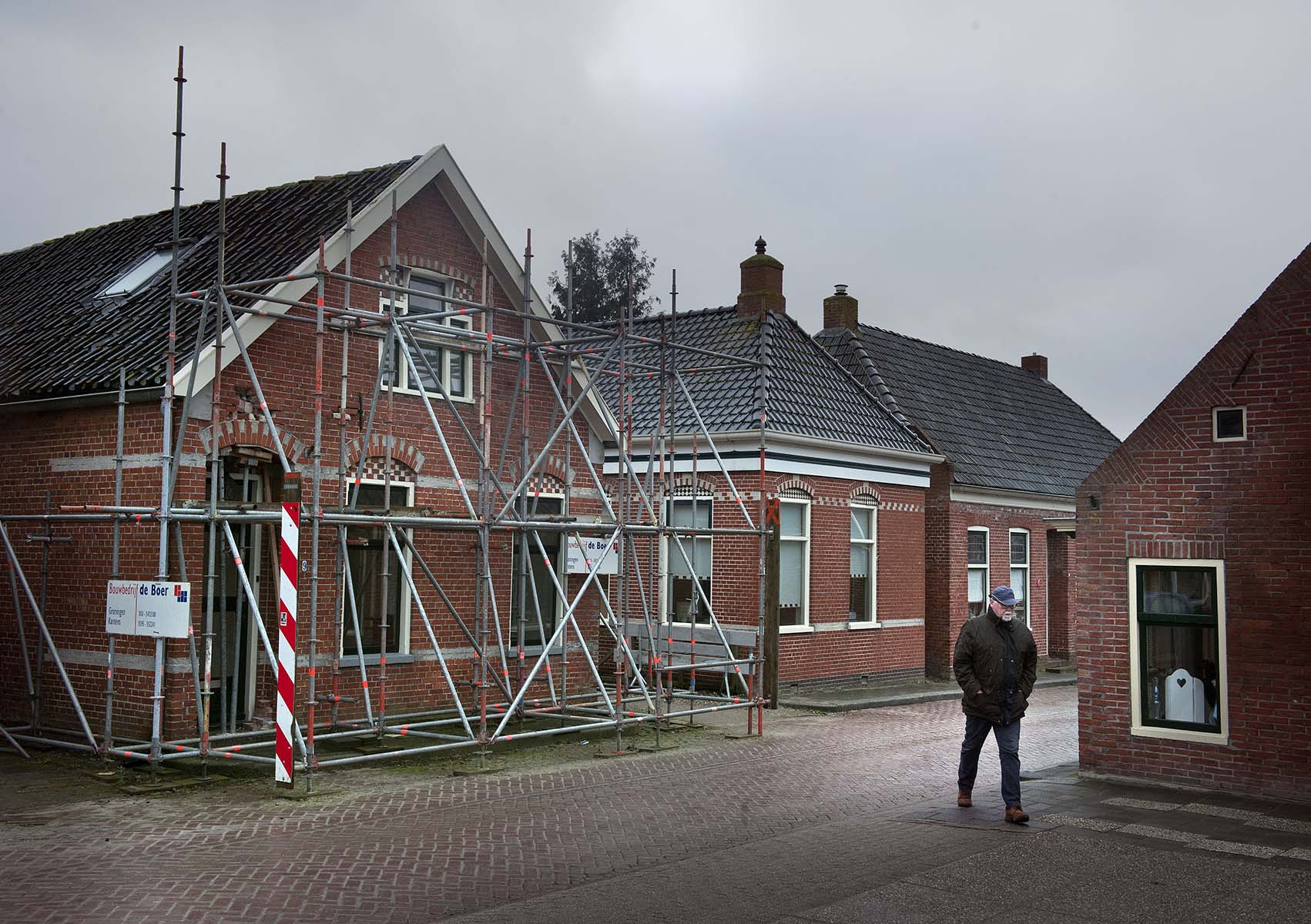Opportunities to increase home sales in Groningen earthquake zone
A University of Groningen study into the experiences of home sellers in the earthquake zone in the north and middle of Groningen reveals that the housing market is at a stalemate. Houses have been on the market for years and are generally only sold far below the asking price. The researchers offer concrete recommendations to the National Coordinator Groningen, the province of Groningen, and the various municipalities to improve the situation: when conducting research and drawing up policies, they should take better account of the fact that the impact of the earthquakes has created a ‘closed’ housing market. In addition, they should offer support with personal advice and suitable arrangements.
The study by Prof. George de Kam (professor by special appointment in Housing and Landmarkets) and Erik Mey illustrates that those people who are successful in selling their home in this housing market are more likely to move out of the region than sellers outside the earthquake zone. Moreover, the earthquake stigma draws hardly any buyers from outside Groningen. They do not take into account the differences in earthquake impact in the region but simply avoid the entire area. This weakens the negotiating position of sellers. Only inhabitants of the north and middle of Groningen are seizing this opportunity to buy a bigger or more suitable home in their own region for a good price. This explains why certain market segments still have turnover, sometimes even with a shorter listing time and at a reasonable price. Earthquake damage does not make a home unsellable but does influence the price and listing time, as well as the way in which buyers and sellers negotiate.

Concrete recommendations
George de Kam: ‘The good news is that something can be done about this undesirable situation. People who are stuck with their house for a long time require personal support, as do potential buyers. Imagine an app, for example, that helps buyers succeed in this housing market. Or focus on people from the city of Groningen who are unable to find a bigger or more suitable home there because of the city’s overheated housing market. In addition, the policy of the National Coordinator could be better geared to the needs of sellers and buyers. They could develop a guarantee scheme that does justice to the statement “in order to live here, you have to be able to leave”: being generous to those who wish to leave, and rewarding those who stay. They could offer sellers/buyers a reinforcement scan with a corresponding budget, which buyers could then combine with the refurbishment of their home. This way, every sale can result in a reinforced house.’
About the research
Previous research seems to imply that it is harder to sell a house in those parts of the province of Groningen that are plagued by earthquakes caused by the gas extraction. However, some houses change hands easily. Researchers from the Faculty of Spatial Sciences of the University of Groningen wanted to get to the bottom of this. In the summer of 2016, they asked every home owner with a house for sale in earthquake-affected areas about their experience of selling their home. A total of 1,223 home owners filled in the questionnaire, 655 of whom currently have or recently had their home for sale. Of these 655 home owners, 176 recently sold their home. A smaller group was followed on a monthly basis in the period between October 2016 to March 2017, and 24 home-owners were interviewed.
More news
-
01 December 2025
The power of movement
